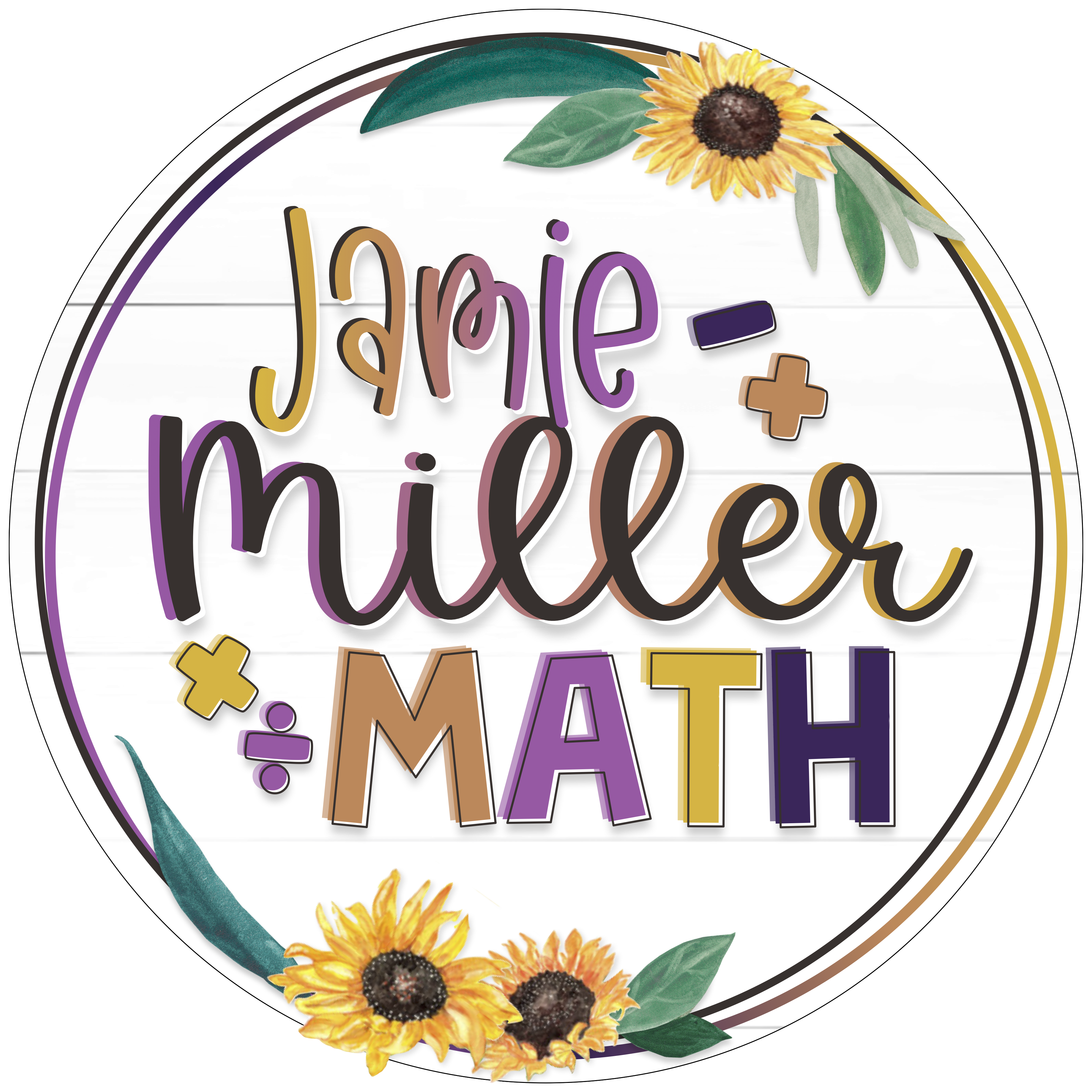
How to Get Started with Math Workshop
What is math workshop?
Math workshop is a framework that allows students to move through stations learning new content, practicing skills and strategies, and reflecting on learning. Math workshop is differentiated for all learners and the predictable structure of the math workshop enables students to be successful.
Why use math workshop in your classroom?
Math workshop was a game-changer for my classroom last year. I felt like I had time to enrich, challenge, and assist all students because I provided them support at their level. Students are more engaged because they oversee their learning and participate in a variety of activities each day or week.
Disclaimer: I do not use math workshop every day with every single lesson.
What is the format of math class?
Ideally, I wish I had block scheduling, but I have 42 minutes for math class and so my students get through two stations each day. This means it will take my students two days to complete all four stations for a lesson.
Day 1
- Daily Warm-up and Homework Check (5 minutes)
- Mini-Lesson (10 minutes)
- Math Workshop Stations (12-minute stations x 2 stations)
- Share/Debrief (3 minutes)
Day 2
- Daily Warm-up and Homework Check (5 minutes)
- Math Workshop Stations (12-minute stations x 2 stations)
- Debriefing/Reflection/Assessment (13 minutes)
Daily Warm-up/Homework Check
Students complete spiral review problems and are responsible for checking their homework. While students are working on the warm-up and checking homework, I am circulating and assisting students. We will briefly go over the warm-up and any homework questions.
Mini-Lessons
Students participate in a mini-lesson where new math content is introduced. During these mini-lessons, we work on utilizing strategies and building number sense as well.
Math Workshop Stations
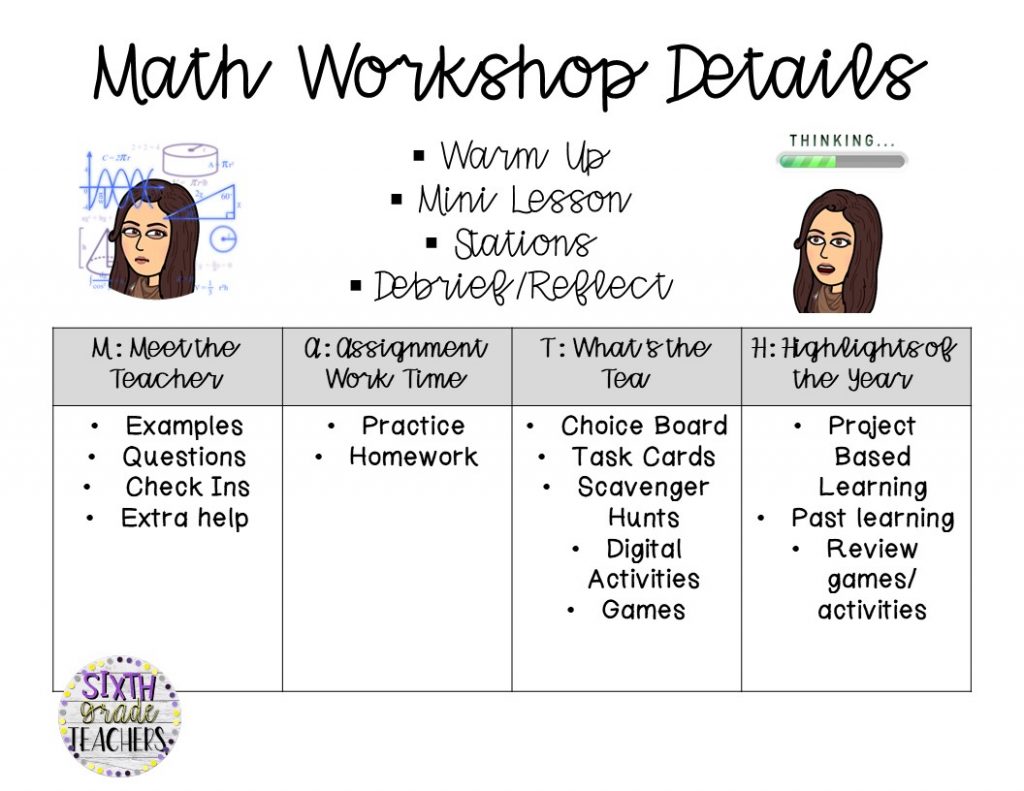
Each lesson consists of four stations:
- M: Meet the Teacher
- A: Assignment Work Time
- T: What’s the Tea
- H: Highlights of the year
M: Meet the Teacher
Students meet me at the carpet (yes, sixth-graders love a carpet) to do the teacher station. This is the time to provide differentiated instruction. I will enrich, extend, and challenge learners who have already mastered the concept/skills of the lesson. I provide support and additional examples/strategies for students who have yet to master the concept/skills of the lesson.
A: Assignment Work Time
Students work on the assignment at their seats. During this time, students are working to build their math reasoning and thinking skills. Using reteaching, practice or enrichment assignments, I find that I can meet all learners.
T: What’s the Tea
Students work on their choice board, which includes hands-on/technology at the designated spot in my classroom (near the laptop cart). During this time, students are using task cards, completing scavenger hunts, playing math games, or working through inquiry labs to discover math concepts through movement and creativity. Depending on the choice board, students may work on digital activities or math websites/apps to build math fluency.
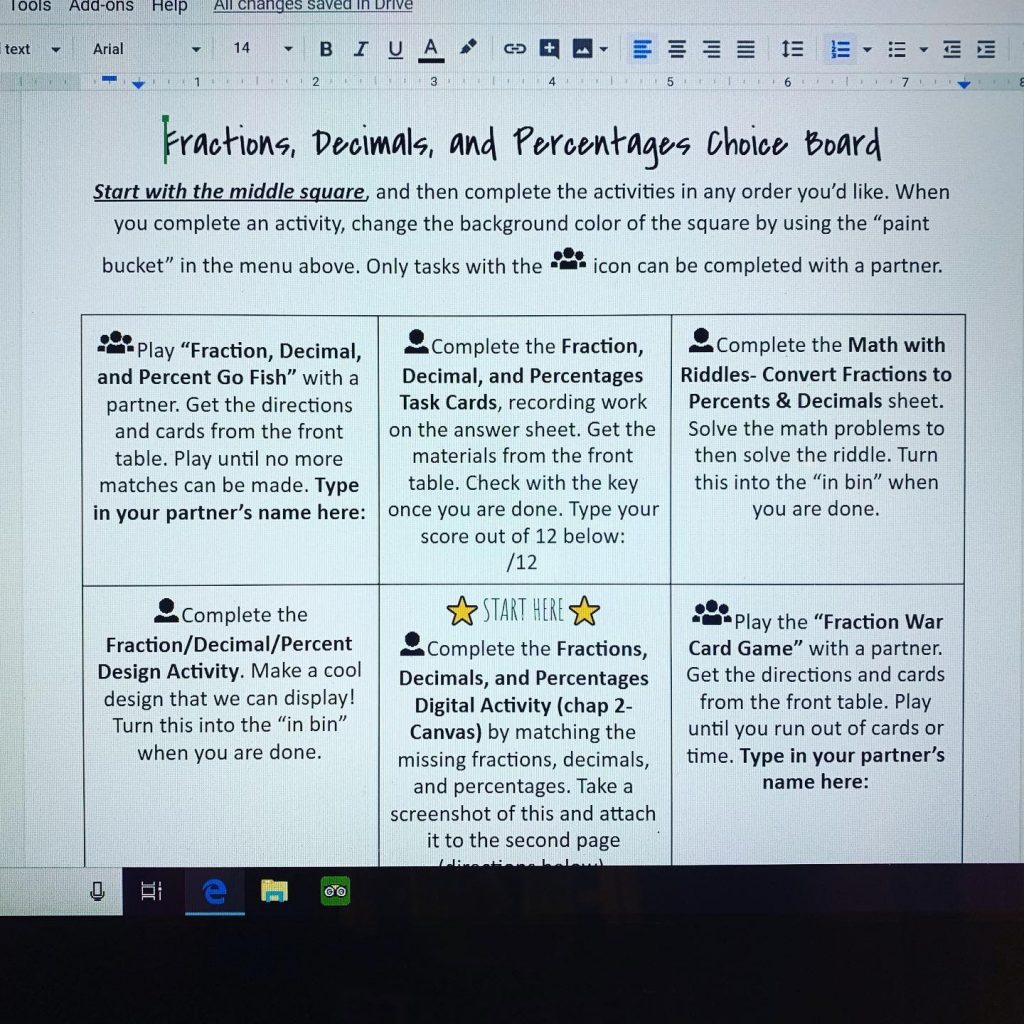
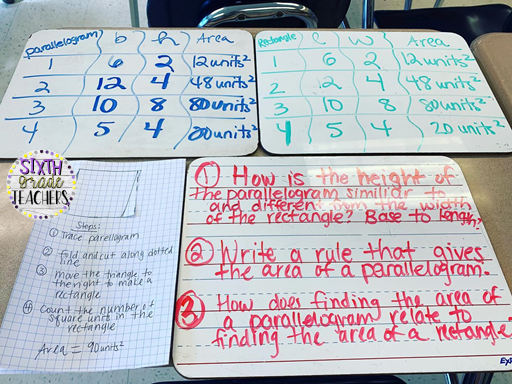
H: Highlights of the Year
Students work at the highlights of the year station at their seats. During this time, students are practicing with performance tasks, solving word problems, modeling math problems, and writing about mathematical reasoning. This is the time where I like to provide a review of the concepts previously taught. This provides a nice spiral review so students are exposed to math concepts year-round.
Share/Debrief
The last 3 minutes of the class consist of sharing or debriefing, and it looks a little different depending on the day. Some examples include:
- Think, Pair, Share: Share a reflection or the response to a specific question with a partner.
- Notebook Share: Write a reflection or share response in a math notebook.
- Exit Ticket: Answer question/s on an exit slip.
- Whole-Class Share Out: Reflect and share with the class.
- Individual Check-In: Using a Google Form, students answer a few quick questions.
How do I organize groups?
I started math workshop last spring, so I already had a pretty good handle on my students’ abilities and grouped them based on previous assessments and performance in class. Since I plan on starting math workshop this coming school year, I will group students based on a pre-assessment and adjust from there.
Note: Groups change based on the topic/skill we are covering and my student’s background knowledge and skill set.
I create 4 groups: group A, B, C, and D consisting of 4-7 students. When creating groups, I start with my students who need the most support and put them in group A. I continue to fill in groups by level with group D being my students who need the least support and most enrichment. Group A starts at the teacher station to get enough practice and support to be confident to complete the remaining stations. Group D starts at the assignment station as they grasp concepts quickly.
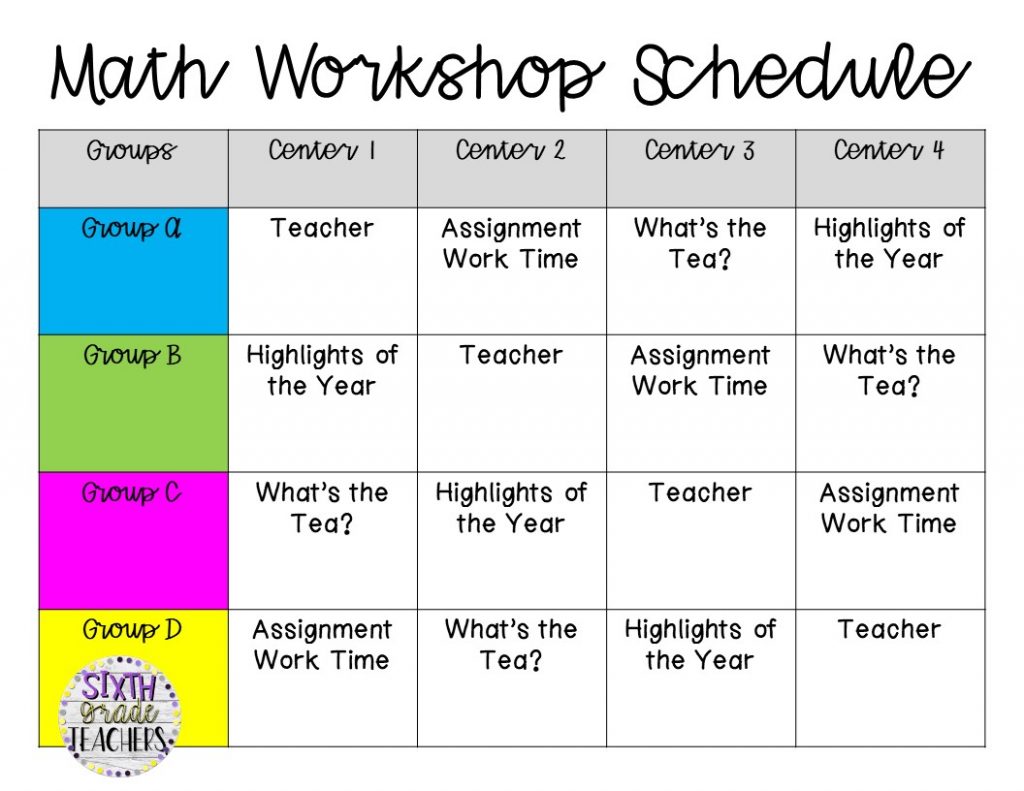
How do my students transition effectively during math workshop?
I highly recommend setting a timer on your screen, so everyone can see it to stay focused and on track. I use my doorbell (purchased from Amazon) to signal transitions between stations. As soon as my students hear the doorbell, they know to transition, and I briefly remind them of what station each group is going to next. Just like any other class routine, practice makes perfect. I reinforce quietly transitioning from station to station while cleaning up materials and gathering new materials (if needed).
How do I manage my classroom during math workshop?
I must admit that managing math workshop was my greatest fear and it prevented me from implementing math workshop earlier in my teaching career. From day 1 of introducing math workshop, I set my expectations high and continuously reinforce those expectations until my students become self-sufficient. Below are my expectations for math workshop that I model for my students:
- Be in the correct area of the room.
- Focus on the task.
- Noise Level:
- Homework & Independent Work: Level 0
- Teacher & Group Work (occasionally my students will play games against their peers): Level 1 or 2
4) Switch when you hear the doorbell.
5) Don’t interrupt me unless… (I insert some funny things here.)

In addition, I hold my students accountable by collecting all the work and grading it. Now, I don’t grade everything single thing my students do but I pick and choose what to grade. My students never know what will be graded each lesson, so it keeps them on their toes.
Where do I get all the resources for math workshop?
I am very fortunate in the fact that my math curriculum provides a plethora of resources from remediation to practice to enrichment so most of the resources come right from my math curriculum. However, I do also create my own resources and use resources from other TpT sellers when I feel that there is a lack of resources. I keep a PowerPoint presentation where I record the resources used for each station and keep a hard copy of the resource (if applicable) in my Math Workshop Binder so I can remember from year to year. A
Are you ready to give math workshop a try?
If you want to give math workshop a try in your own classroom, grab the Editable Math Workshop Resources, and feel free to comment with any questions you have about math workshop below.


